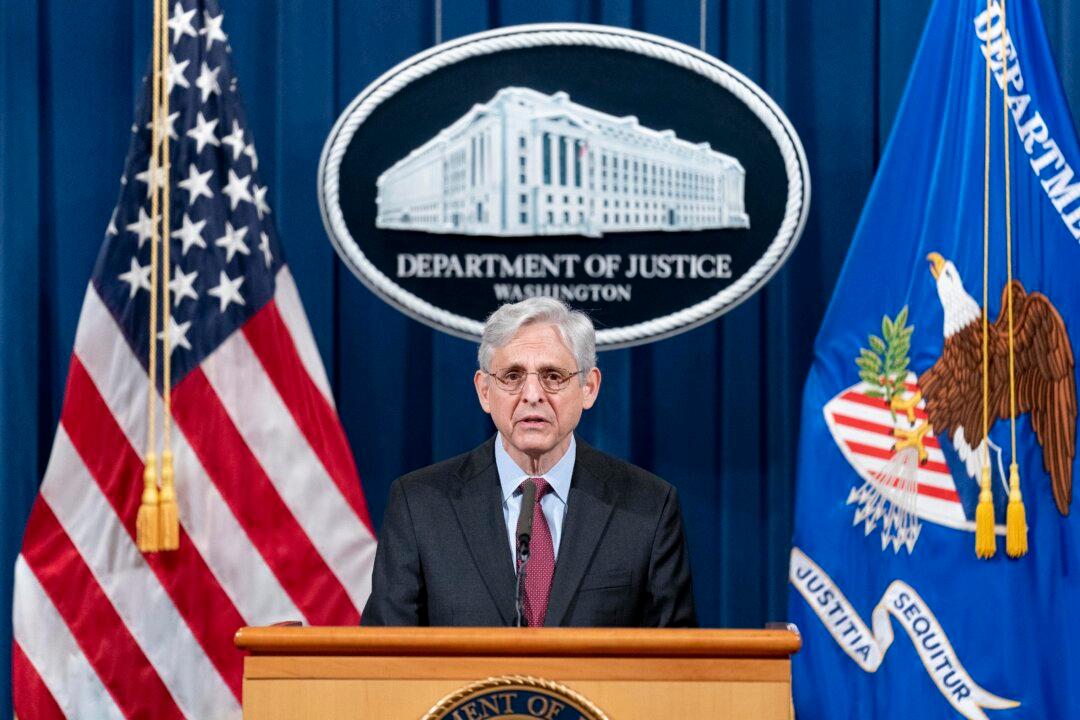Attorney General Merrick Garland announced on May 26 a new three-pronged initiative to help combat the surge of violent crime in several U.S. cities in the wake of George Floyd’s death last summer.
Garland’s strategy consists of directing the Justice Department’s 94 U.S. attorney’s offices to adopt a set of principles focused on improving the department’s approach to reducing violent crime, such as improving community relations and investing in prevention programs.




